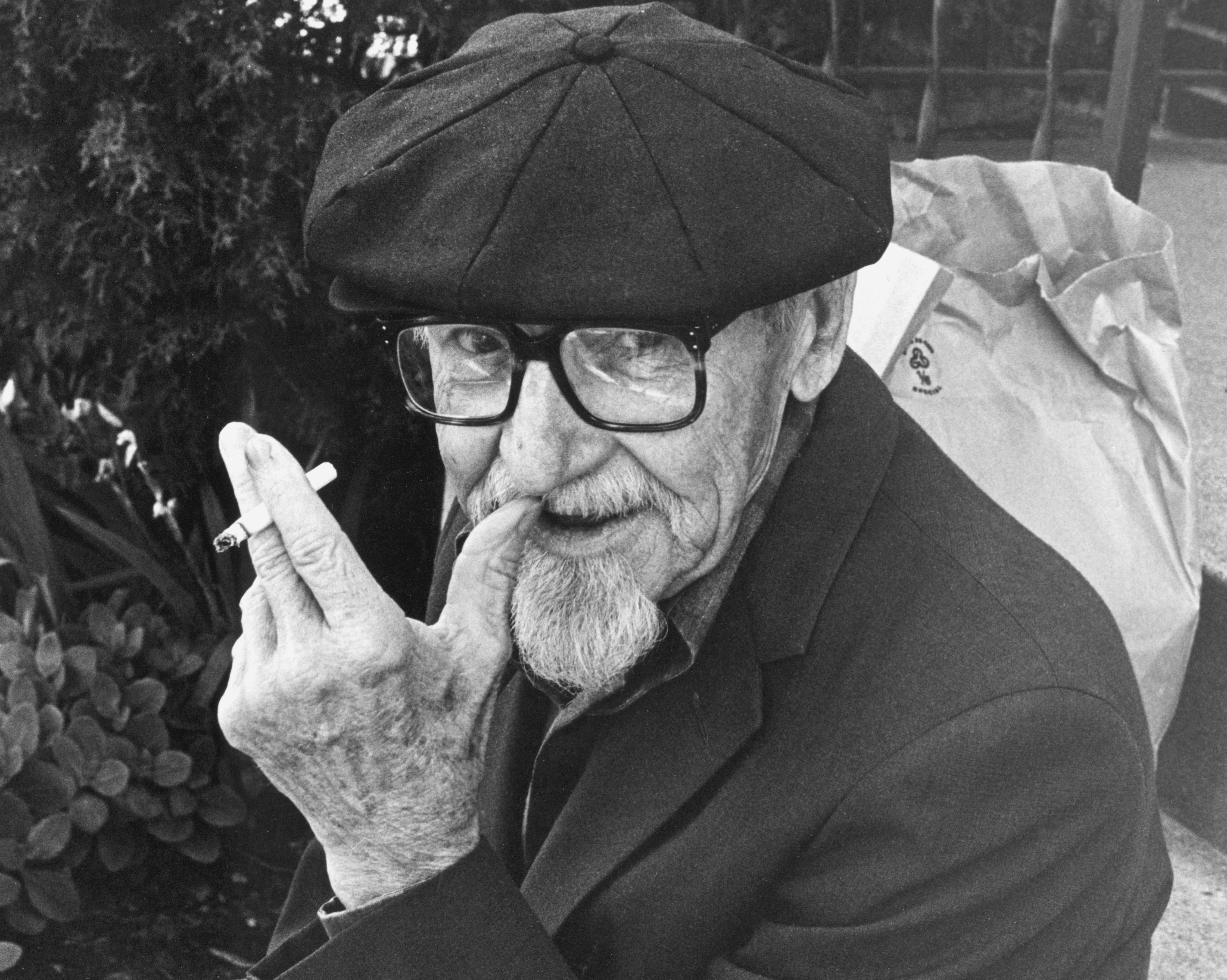Recently I started reading Roger Zelazny’s Amber series. I’ve been hearing about this for decades, how great it is, and till now it’s one of the few things of Zelazny’s that I’ve resisted reading.
See, it’s pretty much fantasy, in form if not conceit. I can see a way to describe the world he created here in quantum mechanical terms and render it SF, but frankly it’s a typical sword and sibling fantasy. Genealogy and combat.
But it’s Zelazny, so while reading it one is having a good time. He was always dependable that way, he was never dull. This, however, is not his major work.
But it got me thinking about him again.
Roger Zelazny caused me, as a kid, to defend myself.
I attended a parochial school—Lutheran, to be exact. This was a peculiar situation since my parents, at the time, were more or less Mormon. The choice of Emmaus Lutheran School came about through a combination of idiotic districting restrictions in the public schools, which would have sent me to a school several miles away when there was one only five blocks away, and their general dissatisfaction with the public school system. You see, I was a poor student. They thought it was perhaps a disciplinary problem, one which the public schools, at that time, were by law not allowed to address. Corporal punishment had been banned in the schools. (Of course, this didn’t matter to some teachers: I had witnessed a student beaten and humiliated by a gym coach when I was in the first grade.) They assumed—and I suppose this was true to some extent—that I was playing when I should have been paying attention and that my attention could be gotten by threat of spanking.
(The reality was less than and more than their surmise. In truth—and I can only say this in hindsight—public school damaged my interest in learning. My birthday is in October, roughly five to six weeks into the school year. When my mother first tried to enroll me, I was only four years old. They wouldn’t take me, despite the immanence of my turning five. I had to wait a year. When I turned six, they pulled me out of kindergarten and put me in first grade, “where I belonged”. The first grade teacher expected me—and the half dozen others who suffered the same fate—to simply catch up, without any remedial tutoring. Needless to say, this put me off the whole thing. That and the fact that classes were boring combined to make me a rather bad student.)
In fact, I only ever received a spanking in school once, and that for something I didn’t do. Nevertheless, the threat was there and if this contributed to my somewhat better performance, then so be it. Personally, I don’t think so. For one, my grades didn’t improve all that much. For another, the class sizes were smaller and we did get more attention from the teachers.
Along with this, though, came religious instruction.
Somewhere between my entry into this school in third grade and graduation I became an insatiable reader, especially of science fiction.
Reading alone would have made me odd. But, like all misfits, my peculiarities came in multiples. I was a bit puny, always had been, and abhorred pain, which made me an easy target for bullies. In time I was the brunt of most class jokes. In fifth grade I needed glasses. Not only were they black horn-rims, they were bifocals. To make matters worse, I didn’t like—or understand—cars, sports, or rock’n’roll. Socially, I was a cipher. Today you’d say nerd. (No pocket protector, though; never had one of those.) But on top of all that, I read. All the time, whenever I could. At recess I’d sneak upstairs to a spot on the stage I’d found where no one could find me, and read. I never was found, even though teachers were looking for me, too.
Needless to say, I got teased about the reading.
My best friend sat in front of me in seventh grade. Greg was very tall for his age and was one of the two boys in the school that no one ever challenged. We’re still friends. I tried to get him to read some of my books, but none of them really interested him. He never questioned my reading, though, until one day his curiosity overwhelmed him.
I just happened to be reading Lord of Light at the moment Greg chose to turn around and ask “Why do you read so much?”
I just looked at him. I have no idea what went through my mind, but I can make some good guesses. The thing to say—the truth, which, as good christians, we were taught was next to God—would have been “Because I like it. It’s fun.” But this was demonstrably Not True, since very few others of my peers thought it was fun. Reading was hard, like homework. Why would you do it if you didn’t have to? Besides, another good christian virtue was to avoid things that had no other function than pleasure. We did a lot of things because they were “just” fun, but we knew better than to admit to them. It was okay to have fun as long as some other, more salient purpose was simultaneously fulfilled. So I said “Well, I learn things.”
Greg looked skeptical. “Like what? I mean, what are you learning from—what is that? Lord of Light?”
“Uh…” I gazed at the cover of the book, an Avon edition with a black cover and a neat little illustration that looked semi-Indian. What was I learning from it? I grabbed at something. “Well, I’m learning about the Hindu religion.”
Greg laughed and snorted derisively. He snatched the book from my hand and studied it. “This is science fiction. Why would you be learning about Hindus in this?”
I was running out of things to say. I reached for the book and he held it annoyingly out of reach. He started reading the cover blurb out loud, laughing, mispronouncing words.
Attracting attention.
Mr. Obermann, our teacher—and the school principal—suddenly snatched it from Greg’s hand. Mr. Obermann looked about ninety, but in a George C. Scott kind of robust way. He glared at us for a few seconds and returned to his desk.
I watched him for a time—it was supposed to be a study period—and saw him looking the book over. He frowned deeply and looked at me. Then he called me to the front of the class.
“What is this?” he asked, tapping the book.
“A novel.”
“What about?”
Not again. I have since learned that many very good books, when reduced to paragraph long descriptions, sound ridiculous, but I didn’t quite understand this then. I tried to explain. He cut me off, opened a desk drawer, and dropped it in.
He did not return it to me at the end of the day. When I asked him about it he said something about material I had no business reading.
So I told my parents about it.
My mother took the time to come to school the next day. She insisted I sit in on her meeting with Mr. Obermann. She wanted to know why I had not had my book returned and he started explaining about the unsuitability of the subject matter and so on. Mom interrupted.
“You’re telling me you don’t want him learning anything about other religions?”
“This is a Lutheran school. That’s what we teach here.”
“I see. Do you also teach intolerance?”
Mr. Obermann reddened. “Mrs. Tiedemann—”
“I’ll thank you not to censor my son’s reading. If he can’t handle it, he won’t read it.”
I was sent back to class then, so I don’t know what else transpired. My book was returned with an admonition not to bring it to school anymore.
Given how uncomfortable Mr. Obermann became, I made a practice over the next several months of bringing other, hopefully radical books to class. And reading them. In retrospect I suppose my parents were right. I needed a strict, disciplinary environment in which to improve my learning skills. Thanks to Zelazny, I learned an important lesson. It took me years to realize exactly what it was, but the seed was planted there.
If someone tries to make you defend what you read—or that you read—remember that slogan from Harley-Davidson: If I have to explain it, you wouldn’t understand. Just give them a book and tell them to try it out.

